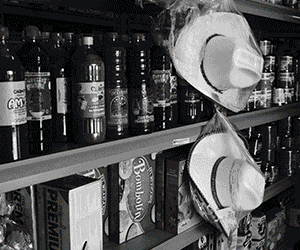Someday I’d like to see the Sahara Desert. My Uncle Jimmy made an unscheduled stop there 20 years ago.
On Sept. 19, 1989, he hopped a plane in Chad, heading to Paris. His flight, designated UTA 772 (for French airline Union des Transports Aeriens), had been in the air for only 46 minutes when a suitcase bomb exploded, and the DC-10 broke up over the Tenere region of Niger.
When the cabin broke up, Uncle Jimmy would have blacked out from hypoxia. But as the jet plummeted, the oxygen content grew, and perhaps he was able to take a few breaths before fire engulfed him and scorched his lungs. He probably suffocated before the flames cooked his body to a crisp.
When search crews found the crash a few hours later, Uncle Jimmy and his fellow travelers were still strapped to their seats, burnt black as coal. As the desert sands whispered around the debris, extremist groups began claiming responsibility, and relatives of the 170 victims began a shedding of tears that probably matched the rainfall in that part of the Sahara that year.
In the early 1980s, the United States and Libya had wrangled several times in the Gulf of Sidra, and in 1981, U.S. Navy jets shot down two Libyan SU-22 fighters. Libyan leader Muammar al-Gaddafi stewed for awhile and then, on April 5, 1986, Libyan operatives bombed a Berlin discotheque, killing two U.S. servicemen and maiming 63 other people. Eleven days later, President Ronald Reagan ordered retaliatory attacks against the Libyan capital of Tripoli and city of Benghaz that killed 15 Libyans and wounded 100 others. On Dec. 21, 1988, Libyan operatives blew up Pan Am 103 over Lockerbie, Scotland. Ten months later, they also sabotaged UTA 772.
In 1999, six Libyans were convicted in absentia in Paris for the bombing of UTA 772. Libya at first denied any involvement in either airline bombing. Then Gaddafi had a change of heart. Libya’s sputtering economy could profit by cozying up with the West. He allowed international inspectors to poke around for weapons of mass destruction; they found and destroyed rudimentary weapons
In 2003, Libya accepted responsibility for the Lockerbie bombing and became the first state sponsor of terrorism to begin compensating the families of its victims. In 2004, U.S.-Libyan relations were formally normalized. By March 2006, Gaddafi had a new lease on Western credibility, and France was helping Libya develop a nuclear power program.
In August 2007, a U.S. federal judge found Libya directly responsible for the UTA 772 bombing and in January 2008 awarded $6 billion in damages to the airline and to the victims’ families. In late October 2008, Libya agreed to pay $1.5 billion into a fund to compensate American victims of Pan Am 103, UTA 722, and the Berlin discotheque bombing. President George W. Bush then signed an executive order granting Libya immunity from further terrorism-related lawsuits.
Last month, four U.S. senators, including John McCain, paid Libya a trade visit. Two days later, Abdel Basset Ali al-Megrahi – the only Libyan ever imprisoned for the sabotage of Pan Am 103 or UTA 722 – was released from Scottish custody due to terminal illness. Officially the U.S. and British governments strenuously opposed his release, but I think it likely that Scotland’s compassion was sweetened by British and American companies’ desire to make millions selling military hardware to Libya and buying oil from its huge reserves.
I realize that the release of one dying terrorist is a small price to pay for access to such a rich pot of fossil fuels. But I believe that our tacit acquiescence in al-Megrahi’s release sets a disturbing precedent. If, 20 years from now, Osama bin Laden ends up presiding over some oil-rich nation, will we find it in our hearts to accept financial compensation for 9/11 and let bygones be bygones?
I fear that I know the answer. We’re still oil and gas addicts who’d sell our grandmothers for a fix. In this case, we simply betrayed the memories of folks like Uncle Jimmy.
Taking money for the 9/11 victims would surely get easier with each payment. By the time we received compensation for the 2,000th victim, bin Laden would seem like an old fraternity buddy.
Much of the UTA 772 wreckage still sits in the desert. In 2007, French relatives of some of the victims set the severed right wing on end, built a concrete base around it, and mounted a plaque there memorializing the victims.
If I ever make it to the Tenere region, it won’t be just to see Uncle Jimmy’s name on the rough monument. I’d like to rip the plaque off and send it to Libya. Gaddafi deserves a receipt.
E.R. Bills is a local freelance writer.











